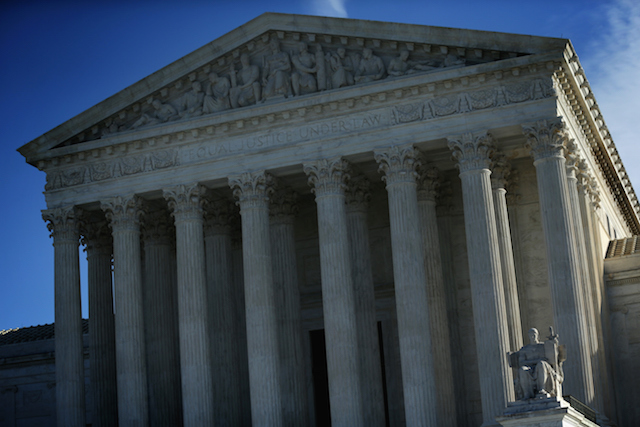A potentially landmark case on reproductive rights will be argued before the Supreme Court of the United States (SCOTUS) tomorrow (March 20).
NIFLA v. Becerra seeks to determine if the state of California is legally able to require that anti-abortion organizations that provide medical information to women must also inform them about abortions and contraception.
The case centers on the Reproductive FACT Act, a California law that was passed in 2015. Under this ordinance, licensed crisis pregnancy centers (CPCs) are required to post information about affordable abortion and birth control services offered by the state. And unlicensed CPCs must disclose that they do not have medical certification.
Crisis pregnancy centers, which date back to the early 1970s, are facilities created by anti-abortion organizations to counsel women against abortion. NIFLA is the acronym for National Institute of Family and Life Advocates, an organization that provides legal counsel and training to CPCs, including 135 facilities in California. NIFLA filed the lawsuit that challenges the legislation. On the organization’s website, it writes that the Reproductive FACT Act “means that nonprofit pro-life medical clinics as well as their staff and volunteers are being forced to violate their consciences—an outright violation of their First Amendment rights.”
CPCs are often located in storefront buildings and many—but not all—have medical licenses and are staffed with doctors, nurses and midwives. According to The Atlantic, “In recent years, a number of states and localities have passed legislation designed to fight what they describe as persistent deception at CPCs.” This includes “CPCs provid[ing] misleading and inaccurate information to women, like claiming that abortion leads to suicide and breast cancer.” There have also been reports of staff treating women who have elected to have an abortion in a hostile or negative manner.
“It would be a very different conversation if CPCs were saying exactly who they were up front,” Nourbese Flint, director of Black Women for Wellness—one of the reproductive health organizations that helped pass the FACT Act—told The Atlantic. “It looks like a clinic, walks like a clinic, with people in doctor gear and uniforms on. If you were really in the business of helping women, you wouldn’t need to do all that.” She added that there is a dangerous lack of medical resources in many lower-income earning communities, and higher infant- and maternal-mortality rates for women of color—two reasons why women’s rights must be better protected when it comes to medical care.
Legal experts argue that what is at the crux of NIFLA v. Becarra is who has the right of free speech: women or CPCs? Per The Atlantic:
When the state regulates the labels that go on food products or what a lawyer must tell a client about her rights, it is primarily concerned with the rights of the audience, or the person who is receiving the information. When the state protects protesters with signs or people making a speech in front of city hall, however, the speaker is the main concern. The two parties in the NIFLA case have literally opposite perspectives in the case: California is concerned about the rights of the women who walk into CPCs—the audience—while the pro-life centers are concerned with their own rights as speakers.
The decision, in essence, will determine how states regulate anti-abortion organizations, as well as how these organizations push their agenda. According to New York Magazine, "if NIFLA wins the case, California will no longer be able to enforce the [Reproductive FACT Act]. However, if NIFLA loses, other states could pass similar laws in the future."
Opening arguments before the Supreme Court are scheduled to begin at 10 a.m. EDT tomorrow. A decision is not expected until the summer.
